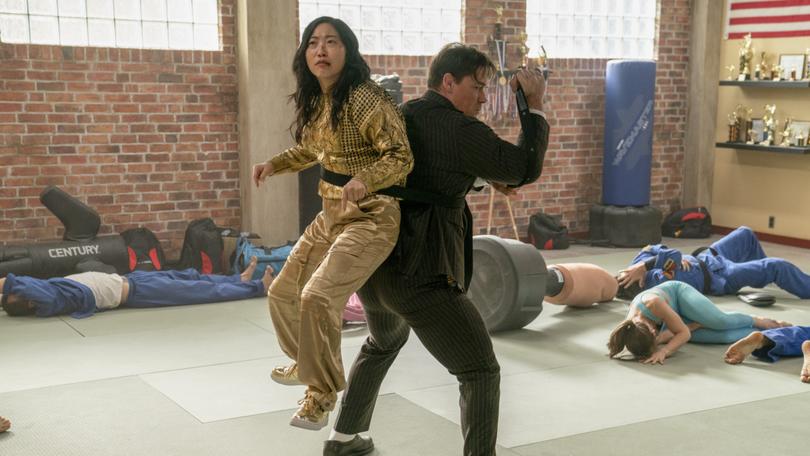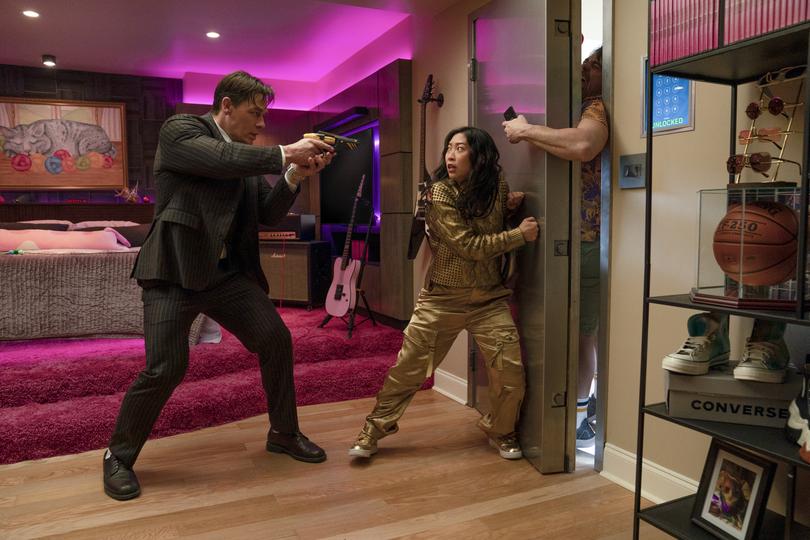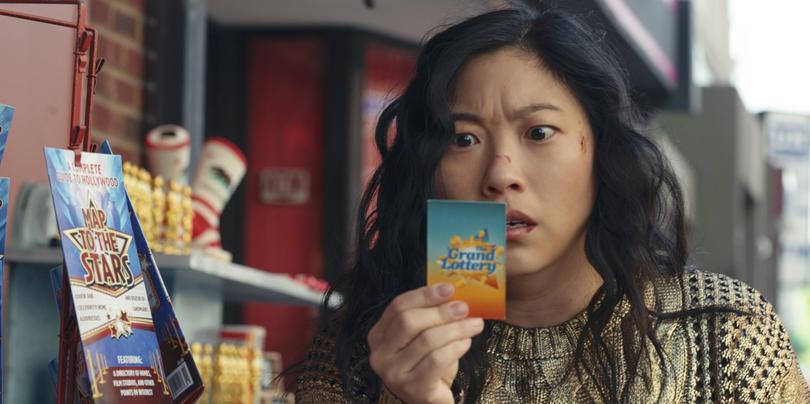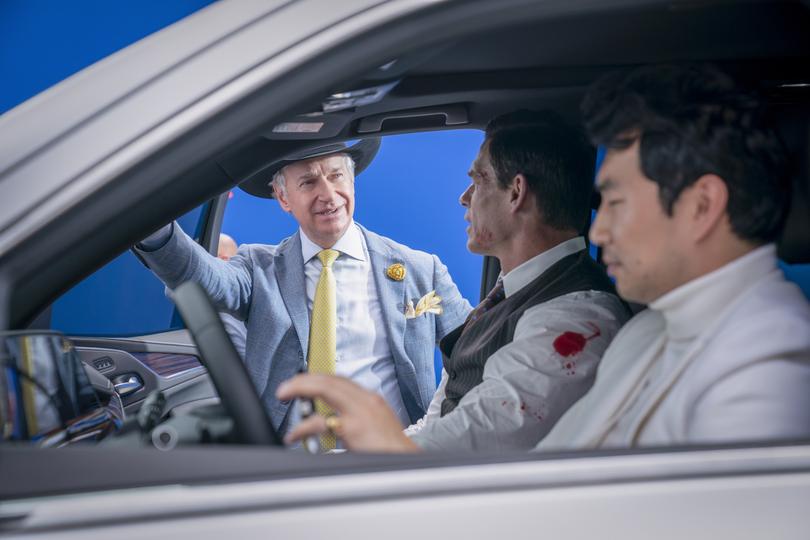Jackpot director Paul Feig on the joy and mayhem of physical comedy
Director Paul Feig, of Bridesmaids and Spy fame, leans fully into the funnies of big set-pieces involving lots of physical comedy.

Some of the earliest masters of cinema knew exactly how to get a laugh without a single punchline.
Before the advent of talkies, Charlie Chaplin, Buster Keaton and Harold Lloyd would stage elaborate sequences in which one movement led to another that led to another and to another, as if it was a Rube Goldberg contraption.
In Keaton’s 1928 film Steamboat Bill Jr, the façade of a house falls down around him, only for his character to be spared from being squished when the frame of the open window lands precisely on top of him.
Sign up to The Nightly's newsletters.
Get the first look at the digital newspaper, curated daily stories and breaking headlines delivered to your inbox.
By continuing you agree to our Terms and Privacy Policy.From Jacques Tati and Rowan Atkinson to Wes Anderson and Jackie Chan, filmmakers have understood the visual poetry of physical comedy, and its ability to inspire a full-bellied guffaw, a visceral rumble throughout one’s body.
Paul Feig has directed some of the most memorable scenes of physical comedy in recent years including Melissa McCarthy’s tipped scooter in Spy and THAT wedding dress poop sequence in Bridesmaids.
The actor-turned-filmmaker is the man calling the shots in Jackpot, a raucous action comedy starring Awkwafina, John Cena and Simu Liu.

The story is set not long into the future in which Los Angelenos can volunteer to play a game where the randomly selected winner pockets billions of dollars, but only if they stay alive until sunset. Anyone who’s playing the game can steal the prize if they kill the winner.
Awkwafina plays Katie, an out-of-work actor who inadvertently entered the competition and is being chased down by half the population in LA, and Cena is Noel, a freelance security agent trying to keep her safe.
It’s the kind of wild scenario that leads to chaos, especially when you have two actors who are as comically gifted as they are, and willing to put their bodies through it for the laugh.
“One of the rules of the lottery is you can’t use guns, so that changes everything because if it was all gunplay, it wouldn’t be a fun movie,” Feig explained to The Nightly. “It’d just be people shooting at her. Because there are no guns, you have to say, ‘If I’m going to kill someone, I have to do it face-to-face’.
“You have to get up there with whatever you have, and you don’t she’s going to be where you are, you’re grabbing whatever you can, and then she’s grabbing whatever she can to get out of it, and John’s (character) is grabbing whatever he can to defend himself.
“It’s a beautiful launch pad for funny physical comedy.”

Feig doesn’t like the term “slapstick” because he considers it to be a more presentational form of physical comedy that’s over-the-top and sometimes unjustified. For instance, a confident woman walks along and just trips for no reason other than she’s wearing heels.
For Feig, the physical comedy has to exist within a story that can carry the shenanigans. It’s why he loves Jackie Chan movies or the Peter Sellers Pink Panther films.
“Those gags are so perfect because there’s a logic to each one of them of why this thing happens,” he added. “He thinks it’s one thing and he leans on the thing and doesn’t know it’s going to fall over.
“This is all logical, physical bodies in the real world, having trouble with things or getting in situations they have to get themselves out of.”
Physical comedy is something of an endangered species on screen and Feig said audiences can be weird about it because if it’s too silly, they rebel against it. It’s a fine line.
Plus, there’s the trend of comedy becoming more wordplay than physical. There are fewer comedy movies being released in cinemas, and TV culture has, arguably, become the dominant form of screen entertainment.
“TV has gotten very verbal, which has then made films very verbal, unless you’re in a big, giant production,” Feig said.
“The thing is, you have to come up with the vehicle to hold that physical comedy.”

The shift to streaming has changed the culture and expectations of comedy movies. The films that were playing in cinemas only 10 years ago, including the ones Feig made or Judd Apatow, Seth Rogen, Adam McKay and Edgar Wright, and going a little further back to the Ivan Reitman flicks, are increasingly on streaming.
The collective experience of sharing a laugh with an audience is harder to come by. Deadpool & Wolverine is the year’s second highest grossing movie so far, and it’s a proper comedy but it’s also a superhero movie.
“My whole bread and butter has always been doing it for the big screen,” Feig said. “And I engineer them for the big screen with our test screenings. We’re always making sure every joke lands with a big part of the audience.
“So, it is a little bit like, ‘Oh, we’re on streaming’ but at the same time, more people will see it on streaming. It’s very hard to get people to go to the movie theatre, and not even just in today’s world.
“I desperately want comedy to be back in the movie theatres. This is a big movie that plays big on the big screen, but it is also, who’s going to make the movies?
“If Amazon wanted to make the movie so they could put it on the streamer, I’m like, ‘Hey, I’m in’ because I’d rather make the movie than not make the movie.
“If I’m going to sit around waiting for somebody to let me do a big comedy for the big screen, I might be sitting around for a while, and I like to just do it.”
Even Buster Keaton ended up making a TV series in 1950.
Jackpot is streaming on Prime Video from August 15

